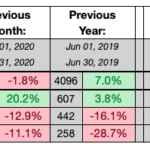A District Court judge in Pennsylvania has granted a defendant’s motion for summary judgment after it was sued for violating the Fair Debt Collection Practices Act because it included line items for interest and fees which the plaintiff took as a threat that they could be added to the unpaid balance in the future.
A copy of the the ruling in the case of Reyes v. Associated Credit Services can be accessed by clicking here.
The plaintiff received a collection letter from the defendant. The letter included a breakdown of the amount that was owed, listing both interest and fees, even though both items were $0.00. The plaintiff filed suit, alleging the inclusion of the fees and interest line item violated several subsections of Section 1692e of the FDCPA by using false, deceptive, or misleading representations connection with the collection of any debt. The plaintiff also claimed the letter violated Section 1692f of the FDCPA by using unfair or unconscionable means to collect on a debt.
But Judge Sylvia Rambo of the District Court for the Middle District of Pennsylvania decided that even a least sophisticated consumer would be smart enough to realize that just because the items were included in the breakdown in the letter, that it did not mean there was an expectation that they would be charged in the future.
“The line items were part of a simple breakdown of Reyes’s balance,” Judge Rambo wrote. “Nothing else in the letter referred to interest or fees, and nothing in the letter implied that such charges would ever begin to accrue. Even the least sophisticated consumer would not interpret the itemizations as a threat to charge interest and fees.”
Even though the plaintiff found a case in which a Magistrate Judge denied a motion to dismiss over the inclusion of a similar line item in a collection letter, Judge Rambo declined to follow that ruling.
Judge Rambo also did not see any violation of Section 1692f in the letter. “The line items simply clarified the makeup of Reyes’s debt, making clear that she owed neither interest nor other fees on the principal balance,” she wrote. “The collection letter contained no implicit or explicit threats or any other statements that could be reasonably construed as unfair or unconscionable.”









